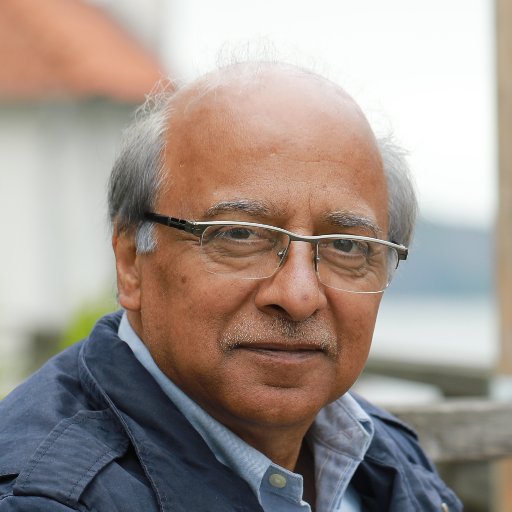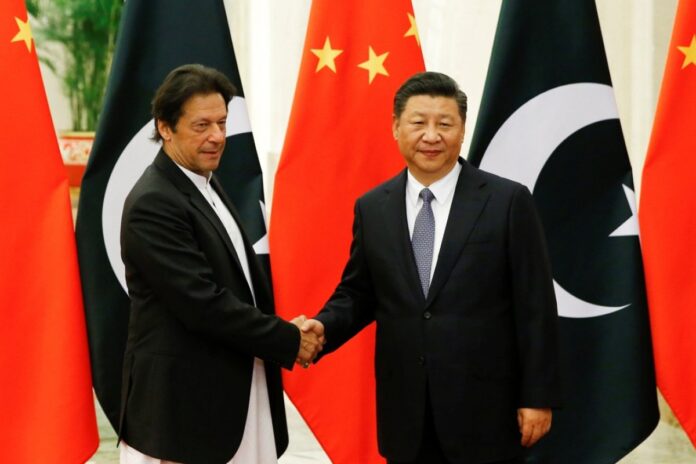Imtiaz Gul-Editor-in-Chief

Only when in the company of the Chinese strategic experts and academics does one realise the intensity of the country’s relations with Pakistan. Most of the Pakistani officials, politicians and academics pale in the face of the Chinese thinking and decision-making community’s views on relations with Pakistan. From top to the bottom the narrative on Pakistan is unflinchingly uniform, and loaded with not only a sense of loyalty but also indebtedness to the Pakistani leadership for having worked as a bridge between the United States and China in the late 1960s. Most Chinese officials never spare an opportunity to mention this dimension of the bilateral relations. This also is the background for the term,“iron brother” (patiye in Chinese, a unique metaphor for Pakistan only. This sense of indebtedness has only gotten deeper and expression of commitment much more intense since the unfolding of the China Pakistan Economic Corridor (CPEC).
This also sets Chinese officials and academia apart from their Pakistani counterparts; in Beijing or elsewhere, Chinese friends sound solid and committed. Islamabad’s power and bureaucratic corridors, on the other hand, resonate with unending, superficial rhetoric anchored in a transactional way of thinking. It is about a different mindset; there, the focus is on how best can China help Pakistan in political and social stability. Here, scepticism abounds as to whether China really wants to help us or is the entire Chinese effort driven by self-interest.
From the cold-windy rooftop of the world, Tibet, and the largest province Xinjiang in the northwest to the sun-drenched coastal town of Sanya or Shenzhen or Shanghai, one comes across almost the same story; welcome, we are iron brothers, is the most commonly heard phrase that Chinese (regardless whether officials, intelligent, taxi driver or a guard) when we introduce ourselves.

Are Pakistanis reciprocating the Chinese sentiment? Or let us put it this way; are we in a position to reciprocate at all and match their expectations? A small example illustrates the contrast. When asked as to whether their company could implement a project in Lahore, a senior official, who had spent four years in Pakistan, told us at his office in Shenzhen.
We did work on feasibility, presented it to the official concerned but all of a sudden he was posted out. And we hit a dead end, he said while introducing his company’s product line. He also recalled that Pakistani officials conveniently blame non-functional cameras installed in Islamabad, for example. But they hardly tell you that the standard shelf-life of these cameras is about three years. His reference was the 900 plus of the nearly 1200 out-of-order cameras in the federal capital.
Instead of timely replacing them these officials drag China’s name, citing low quality, the official pointed out.
One should however underline that in many cases it took two to tango; security scanners installed back in 2008-2009 at various ministries and key public places, for example, went out of order within few months. The suppliers and the purchasers obviously knew why these scanners had ceased to function. Huge commission were involved, it seemed.
“Unless you have dedicated officials on top who can ensure continuity and focus not much will work in Pakistan,” said the official. His particular point of reference was the police in Punjab and Sindh, where key officials remain at whims of provincial chief executives.

Devolution, one must admit, is a good way of inclusive development. But it can become a bane when politicians and bureaucrats use the powers under devolution to obstruct, stall and subvert nationally important projects. The Rashakai Special Economic Zone SEZ) is a case in point.
Shakai SEZ indeed exemplifies the sad story of key projects stuck between the provincial and the federal government. Chinese took some time to understand that unlike China, where even mountains move once the President and his core have decided something, the bureaucracy as well as the 18th amendment stand in the way of swift implementation of projects. Wheels within wheels, so to say, which become
Chinese are equally wary of the snail-paced work on this SEZ. It should have been launched almost a year ago. But our British-era obsolete Planning Commission regime coupled with incompetent bureaucrats continue to stone-wall the launch.
The Pakistani part of work – permissions, tariffs, and related bureaucratic formalities – for the 300 MW power plant and the airport for Gwadar is another sad story. Both projects are victims of Pakistani inefficiency, bureaucratic rigmarole and feet-dragging by the vested interest.
In China, on the other hand, the Communist Party pursed and achieved staggering development through special economic zones and consecutive five-year plans. This basically meant securing land, raising periphery, providing the basic amenities such as water, power, gas, communications and aligning the SEZ with the national highways.
In China, on the other hand, the last decade in particular has seen careers and key positions tied to a brutal performance audit. i.e even if some body manipulated his or her rise to the position through inside contacts, his/her survival rests on performance alone.
Another difference is the surreptitious conduct of Pakistani officials and politicians. They are rarely straight or hardly as committed as their counterparts. That the initial planning for CPEC could be completed only after the Chinese took the matter in their own hands after over a year of frustrating responses by Pakistani bureaucrats is a bitter comment on the way Pakistan works.
Career bureaucrats trained in “ how to control and obstruct” , and fed on privileges, assisted by personal staff officers – instead of self hard work and vision – are still lording over the system. P.M. Khan is surrounded by the same forces of status quo.
Chinese businessmen and officials, on the other hand, may also withhold information in self-interest but would not act the way, for instance, Pakistan acted behind Beijing’s back, when it offered petro-chemical plant at Gwadar to Saudi Arabia. It shocked Chinese as no government functionary or minister had ever hinted at it. Would have been nice to take us into confidence had Pakistan made up its mind. Why would we object to something that will likely strengthen CPEC. But as a matter of principle we should have been informed, said a frustrated Chinese diplomat.
Chinese officials, nevertheless , took the rude shock graciously and never publicly mentioned their displeasure. On the contrary, they have pushed ahead with existing projects.
“We are not here for profits, our leader (President XI) wants us to continue operations out of solidarity with Pakistan,” said a senior executive of a national corporation.

It is indeed a match between two different mindsets – Chinese zeal to deliver as swiftly as possible to report success to their leaders versus Pakistani bureaucratic tendency to nitpick and stall progress on flimsy pretexts. It is a match between Chinese expectations verses Pakistani capacity to match them.
It also offers a contrast at the leadership level; not a single business interest is visible or traceable as far as China’s top leaders are concerned; from Mao to Deng and XI , they all rose to the top from humble backgrounds, shaped the destiny of their country, including the spectacular four decades ( 1978-2018) of liberalisation under Deng. Both Mao and Deng immortalised their names with sheer dedication and integrity. No business empires nor any personal accounts.
In contrast, democrats and generals – as chief executives; in Pakistan – whenever they ride into power – relish and amass its dividends like nowhere because of a boundless greed for material. The system in China under the CPC is loath to personal enrichment or abuse of power. The system is equally dismissive of ancestry, unlike Pakistan, where democracy hardly moves beyond Sharifs, Zardari, Bhuttos, Syeds, Sardars, Nawabs.
The widow of Chairman Mao had tried to act as the surrogate ruler when his health fell, but the Polit Bureau chucked her out.
A brutal across-the-board ruthless accountability, the hallmark of President Xi’s presidency since 2012, has seen thousands of heads roll – dismissed, jailed or executed.
In Pakistan, the National Accountability Bureau, on the contrary, stumbled upon Rs. 700 million in cash at Balochistan’s former finance secretary Mushtaq Raeesani, but the accused today roams freely. Here, NAB claims to catch big thieves “red-handed” but the cases drag on for years.
Dr.Asim Hussein was accused of corruption worth 450 billion but not an iota proven yet. Similarly, the controversial deal around Karkey power plant literally commissioned by the PPP government in 2009-2010 in dubious circumstances, has landed Pakistan in financial troubles.
Also, in China, no body accuses the accountability campaign as a witch-hunt of a particular group or party. In Pakistan, the NAB process has become brazen and controversial following the string of cases against all opposition leaders.
Two different systems, different mindsets indeed. But Pakistan still has a lot to learn from China when it comes to self-less , committed and visionary leadership.




